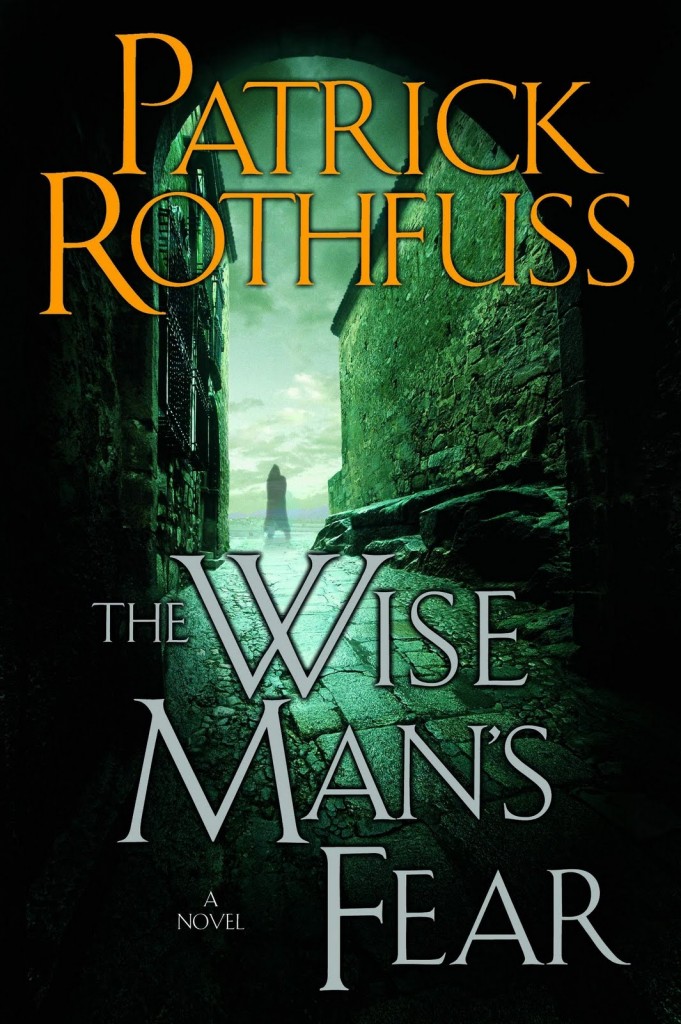I have this theory that English is two languages. Maybe all languages are two languages, but I don’t really know any language but English.
I came across a passage in Patrick Rothfuss’ novel that got me thinking that English can be used in two distinct ways.
Literal Language
Language can be clear and precise. If you want to communicate to your son exactly what you expect from him regarding the cleaning of his room before he goes outside to play, English is more than capable of communicating these expectations. Although your son will likely dash out the door before the tasks are completed, it is no fault of English. The precise nature of the language also makes it effective for writing encyclopedias; it is the language of the academic. In this type of writing, the meaning lies mainly “on the line.”
Poetic Language
But the resources of the English language can also be turned toward more poetic purposes. There are many types of writing which tap into the elegance of the English language. Where meanings lie between or beyond the lines. This type of writing is inferential and is able to reach far beyond the sense of the words to other places or to transcendent meanings.
It is very important that we know which language is being used, or we may completely misunderstand the speaker.
I’ve presented a passage from The Wise Man’s Fear by Patrick Rothfuss before. I love the intelligence of Rothfuss’ work. This dialogue between Kvothe and his teacher Vashet as they discuss the elusive philosophy of Lethani illustrates the dual function of language.
Vashet leaned forward seriously. “Part of the problem is with your language,” she said. “Aturan is very explicit. It is very precise and direct. Our language is rich with implication, so it is easier for us to accept the existence of things that cannot be explained. The Lethani is the greatest of these.”
“Can you give me an example of one other than the Lethani?” I asked. “And please don’t say ‘blue,’ or I might go absolutely mad right here on this bench.”
She thought for a moment. “Love is such a thing. You have knowledge of what it is, but it defies careful explication.”
“Love is a subtle concept,” I admitted. “It’s elusive, like justice, but it can be defined.”
Her eyes sparkled. “Do so then, my clever student. Tell me of love.”
I thought for a quick moment, then for a long moment.
Vashet grinned. “You see how easy it will be for me to pick holes in any definition you give.”
“Love is the willingness to do anything for someone,” I said. “Even at detriment to yourself.”
“In that case,” she said. “How is love different from duty or loyalty?”
“It is also combined with a physical attraction,” I said.
“Even a mother’s love?” Vashet asked.
“Combined with an extreme fondness then,” I amended.
“And what exactly do you mean by ‘fondness’?” she asked with a maddening calm.
“It is . . .” I trailed off, racking my brain to think how I could describe love without resorting to other, equally abstract terms.
“This is the nature of love.” Vashet said. “To attempt to describe it will drive a woman mad. That is what keeps poets scribbling endlessly away. If one could pin it to the paper all complete, the others would lay down their pens. But it cannot be done.”
She held up a finger. “But only a fool claims there is no such thing as love. When you see two young ones staring at each other with dewy eyes, there it is. So thick you can spread it on your bread and eat it. When you see a mother with her child, you see love. When you feel it roil in your belly, you know what it is. Even if you cannot give voice to it in words.”
Vashet made a triumphant gesture. “Thus also is the Lethani. But as it is greater, it is more difficult to point toward. That is the purpose of the questions. Asking them is like asking a young girl about the boy she fancies. Her answers may not use the word, but they reveal love or the lack of it within her heart.”
“How can my answers reveal a knowledge of the Lethani when I don’t truly know what it is?” I asked.
“You obviously understand the Lethani,” she said. “It is rooted deep inside you. Too deep for you to see. Sometimes it is the same with love.”
Vashet reached out and tapped me on the forehead. “As for this Spinning Leaf. I have heard of similar things practiced by other paths. There is no Aturan word for it that I know. It is like a Ketan for your mind. A motion you make with your thoughts, to train them.”
She made a dismissive gesture. “Either way, it is not cheating. It is a way of revealing that which is hidden in the deep waters of your mind. The fact that you found it on your own is quite remarkable.”
I nodded to her. “I bow to your wisdom, Vashet.”
“You bow to the fact that I am unarguably correct.”
She clapped her hands together. “Now, I have much to teach you. However, as you are still welted and flinching, let us forbear the Ketan. Show me your Ademic instead. I want to hear you wound my lovely language with your rough barbarian tongue.” 822-824


Leave a Reply